Science & Society
Sign up for our newsletter
We summarize the week's scientific breakthroughs every Thursday.
-
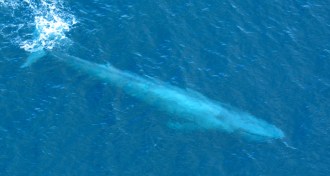 Animals
AnimalsNumbers of California blue whales rebound
Blue whales, the largest animals on Earth, were hunted nearly to extinction. Now the population that feeds off the coast of California appears to have rebounded to close to prewhaling numbers.
-
 Tech
TechSpace tourism’s price tag rockets upward
The “high price” of space tourism proposed in the 1960s is nowhere close to the astronomical price tag of trips today.
By Nsikan Akpan -
 Science & Society
Science & Society‘Enlightening Symbols’ shows how math’s language arose
From numerals to infinity, symbols have advanced mathematical thinking.
-
 Science & Society
Science & SocietyTop 10 mathematical innovations
Nine mathematical innovations that rank right up there with logarithms.
-
 Astronomy
AstronomyThe craziest NASA mission ever proposed
In this issue, Meghan Rosen provides an in-depth report on that mission, but without the erroneous conclusion that the Asteroid Redirect Mission has much to do with asteroid defense.
By Eva Emerson -
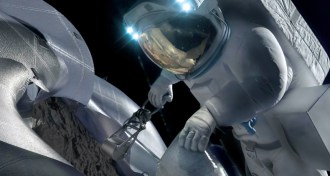 Planetary Science
Planetary ScienceNASA bets on asteroid mission as best path to Mars
NASA wants to bag an asteroid using robotic arms or an enormous sack and place the rock in the moon’s orbit for study. This may keep astronauts working but not, as NASA claims, get them Mars-ready.
By Meghan Rosen -
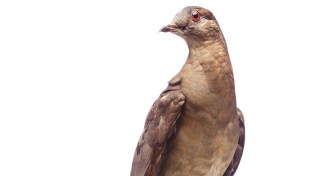 Animals
AnimalsHere’s your chance to see the last passenger pigeon
On display for the 100th anniversary of her species’ extinction, the final passenger pigeon specimen looks pretty good.
By Susan Milius -
 Science & Society
Science & SocietyQuantum connection could revitalize superstrings
Status of superstrings could be elevated by their ability to explain the mysterious rules of quantum mechanics.
-
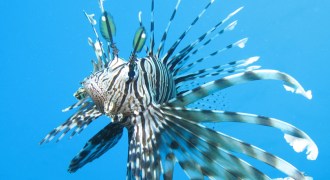 Science & Society
Science & SocietySpiny media battle highlights importance of scientific credit
Media coverage of research on invasive lionfish tolerating brackish water brought up issues of attribution and recognition in science.
-
 Science & Society
Science & SocietyBook delves into Scientific Revolution way beyond Galileo
‘Voyaging in Strange Seas’ shows that modern science was built not just by giants but by hundreds who explored all realms of science.
-
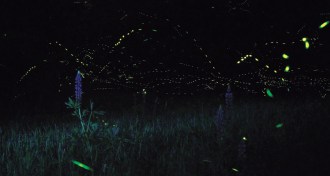 Science & Society
Science & SocietyAn app to track firefly flashings
This summer, you can contribute to citizen science by tracking lightning bugs in your backyard.
-
 Science & Society
Science & SocietyFeedback
Readers discuss mammograms, crops in a warming climate and the impacts of a recession on developing personalities.